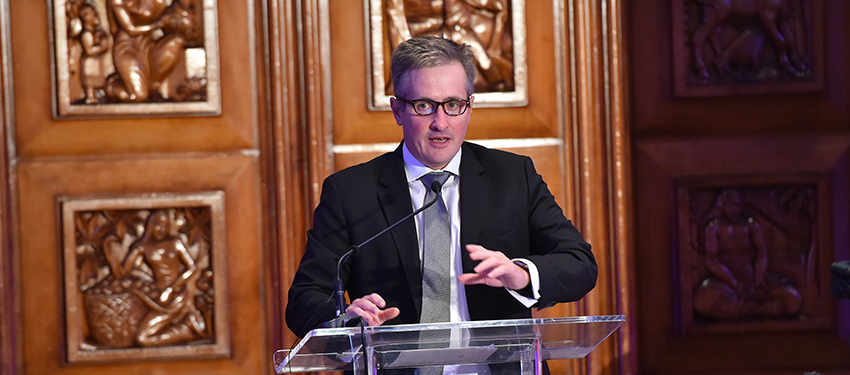London is a world class city. It's an amazing hub of innovation, talent and skills. It has so many great qualities - history and culture, tolerance and creativity, and architecture of course.
But it is not yet a sustainable city.
It might top the polls for 'best big city'. But other places are snapping at our heels. The next mayor has to lead the charge and maintain London's position.
I think Londoners are up for this change. People know that if we tackle climate change now, they can look forward to less pollution, more jobs, better places to live and better transport. What it needs is the right policies from Government, action from business, and opportunities for ordinary people to live more sustainable lives.
I'm actually a geologist by training. So the environment is a real passion of mine and as Managing Director of Berkeley, I try to integrate this agenda into everything we do.
We talk a lot about how to manage and minimise the environmental impact of building more homes. How do we embed sustainability into the places we build, and encourage our customers to relish green living?
I won't deny there are some big challenges. Renewable energy incentives have been withdrawn and the government has pulled back on its approach to zero carbon. The construction industry is also in the midst of a major skills crisis with the cost of labour and materials literally going through the roof.
So I think our response has to be simple. Simple, elegant designs. Simple, robust materials. Creating places where it's easy to live a low carbon life.
Berkeley is building four schools at the moment, as well as shops, parks and even two theatres. All the things that make somewhere a great place to live for the long term.
We always buy land close to public transport - or build that transport infrastructure ourselves. We have just completed a new Crossrail station box on our site at the Royal Arsenal Riverside in Woolwich. Every new Berkeley development is now designed to incorporate cycle storage, while the majority include electric car charging points.
One of the most fundamental issues we face in housing is energy supply. In the past year, 65% of the new homes built by Berkeley were supplied with energy from low carbon or renewable technologies and the carbon emissions from our offices has been reduced by 15%.
We also know that some climate change may be unavoidable - so we're adapting our developments to tackle the risks of flooding, overheating and water shortages.
Frankly, I don't need any convincing that London can be 100% clean energy by 2050. My worry is that we are already behind schedule. Other global cities are moving ahead. The next mayor needs to really champion the climate change agenda and deliver a step-change across the capital. Whoever wins will need a strategy to deliver the London Plan. Not just the plan itself, but mechanisms to implement each policy.
That's why Berkeley is delighted to be supporting this IPPR research - because it will offer practical solutions which help London continue to be the best city in the world.
We are all still learning. I am, you are, Berkeley is and so is every other business. This research will look at lessons learnt from previous energy policies. It will allow us to understand what an effective energy policy might look like in the future. And it will show how the right choices can benefit everyone. That seems exciting and important to me, and I look forward to learning much more in the next few months.
